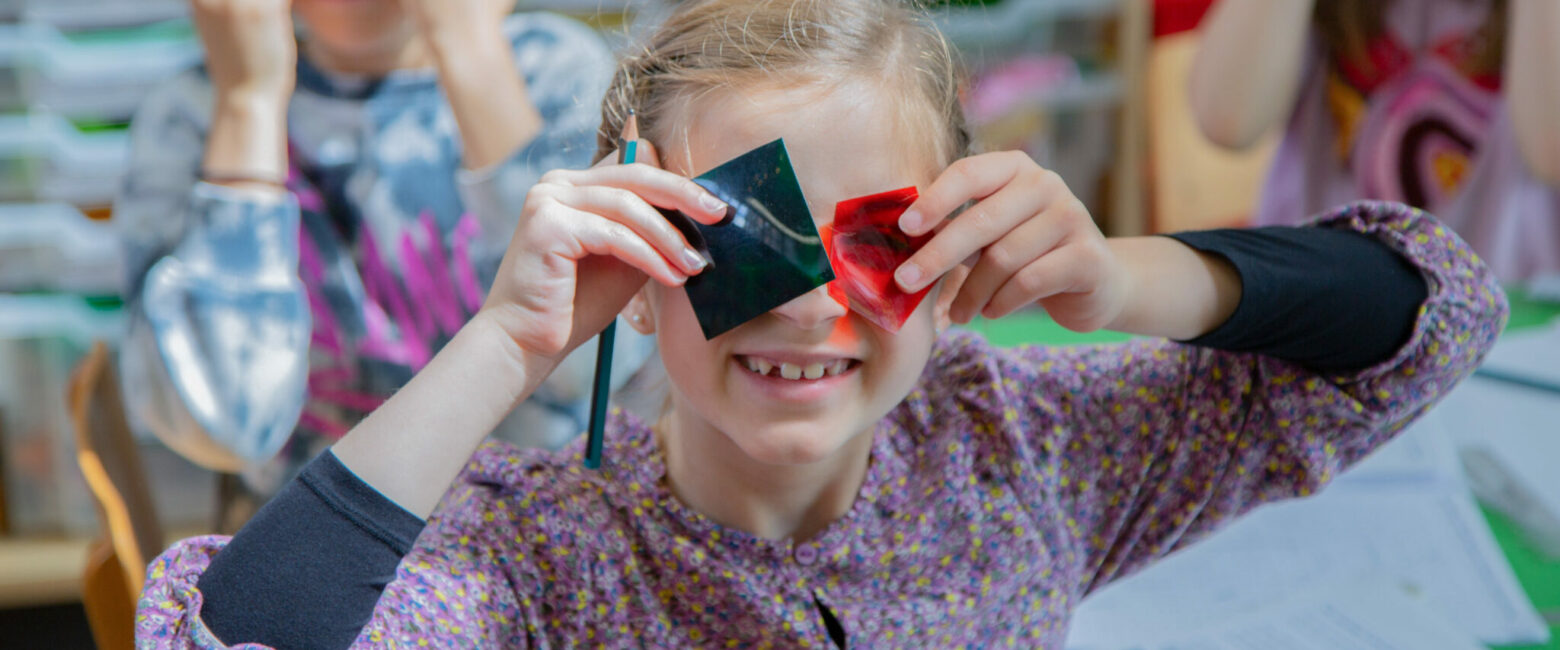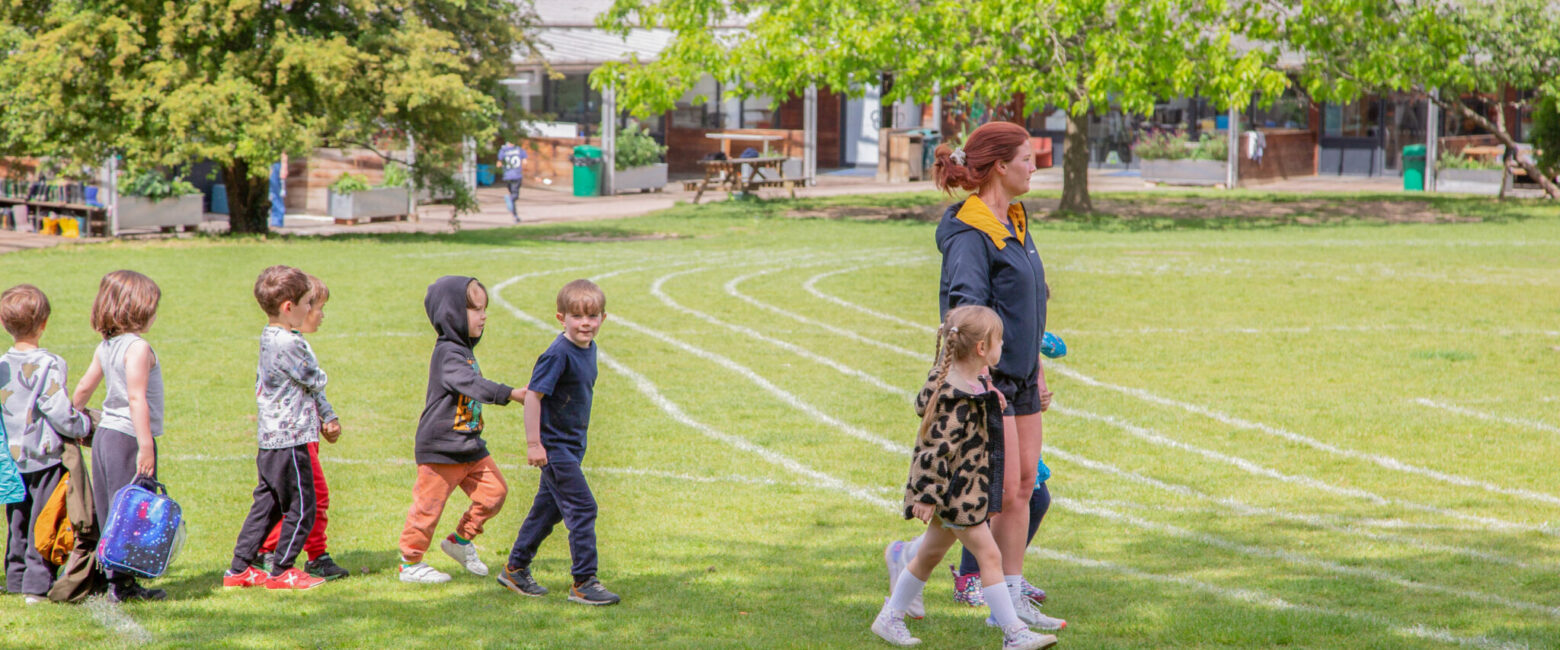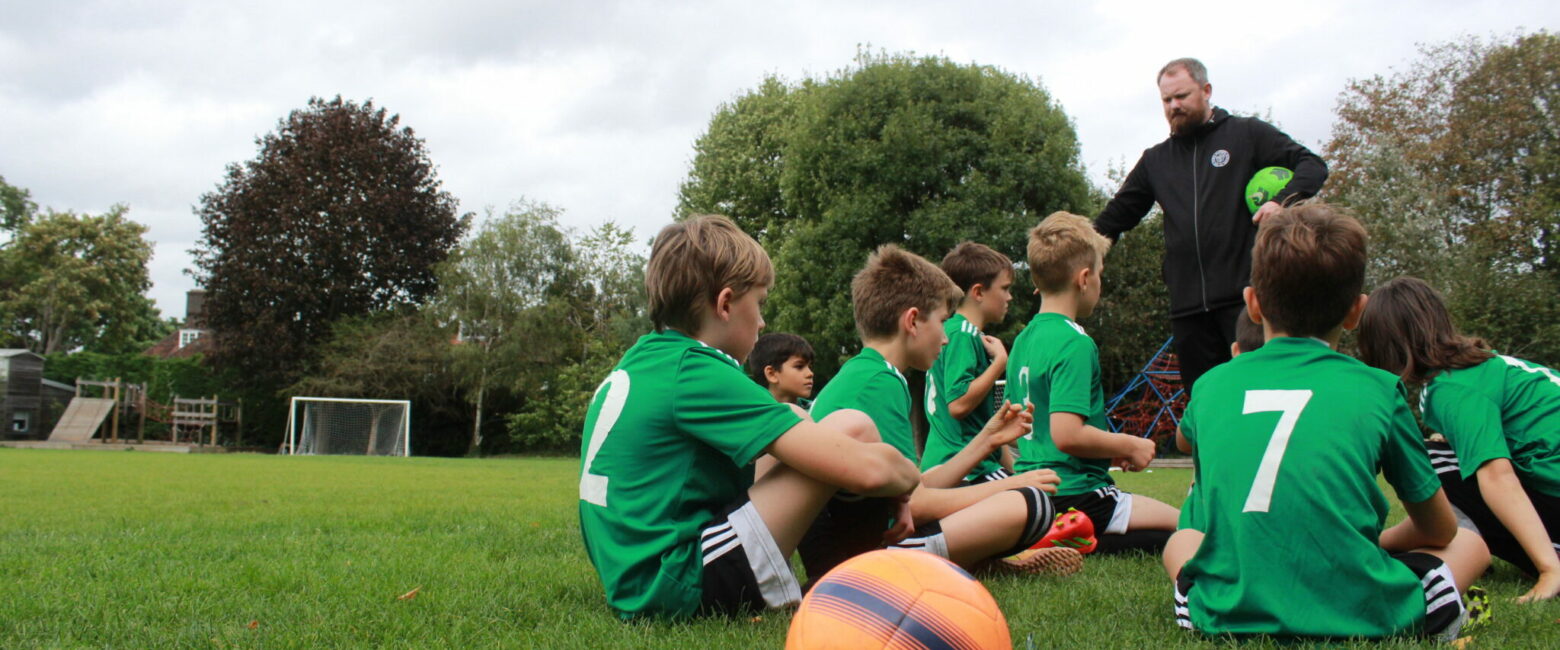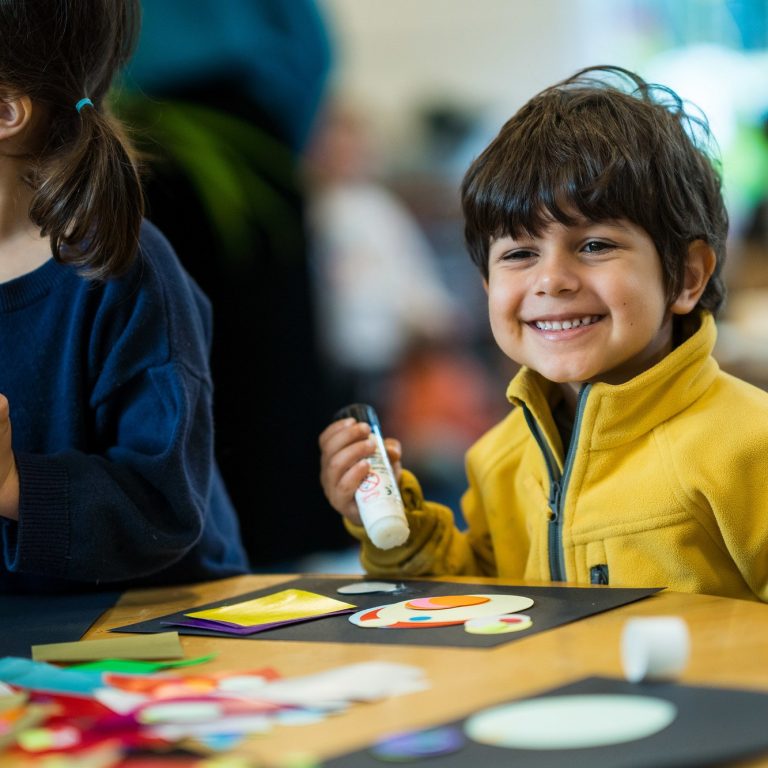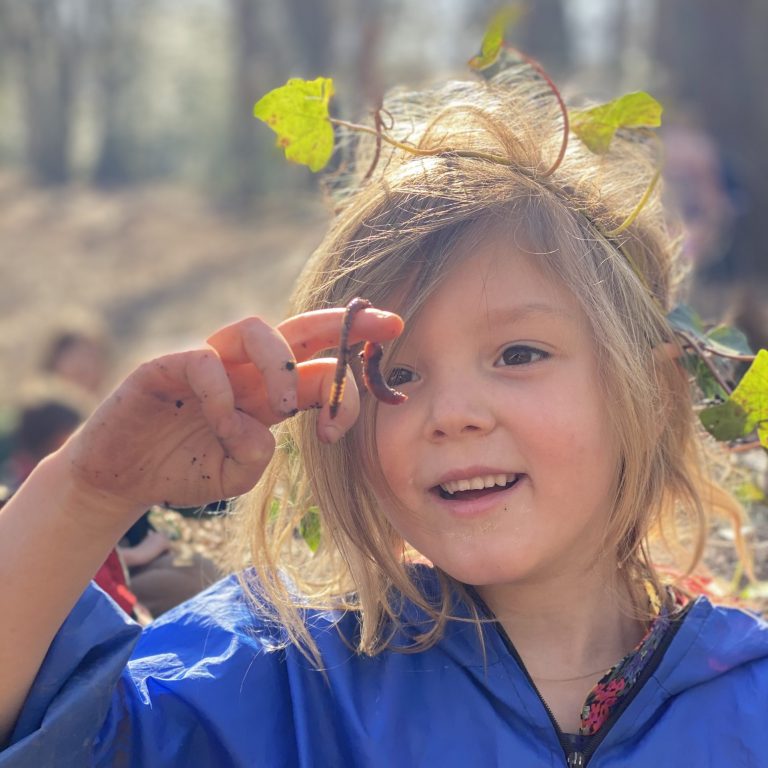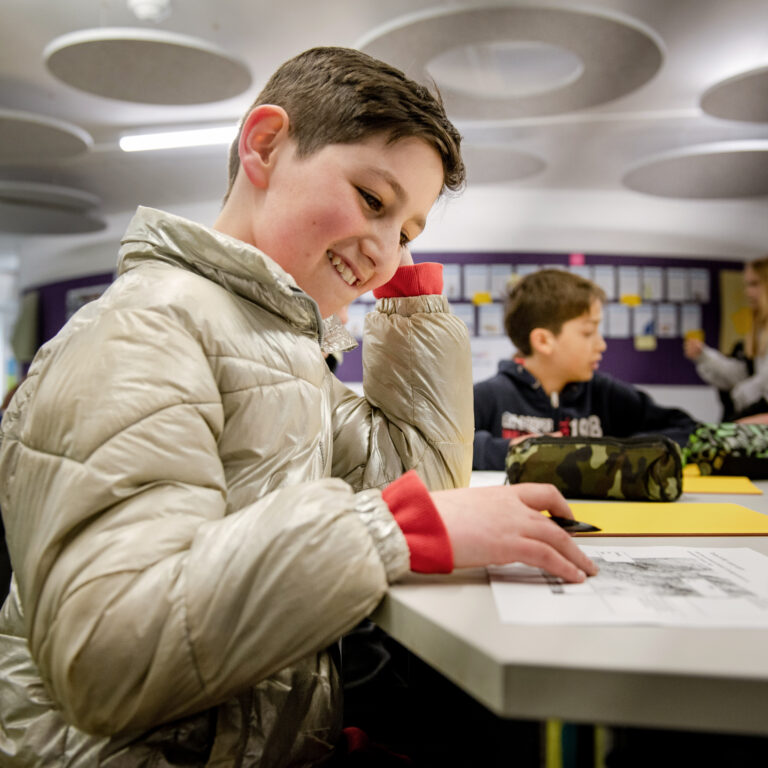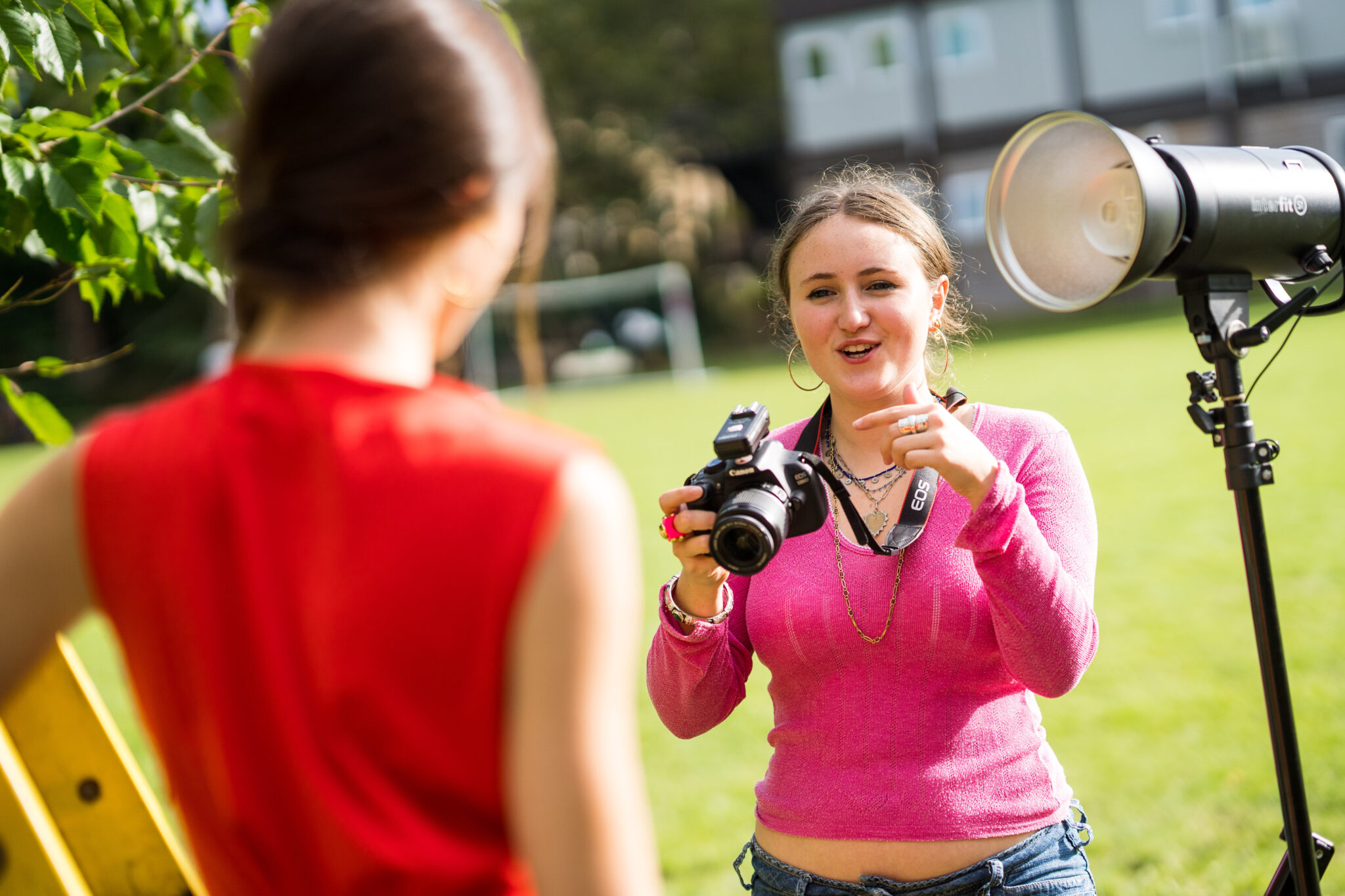Lower School Curriculum
A curriculum that matters – looking beyond knowledge
Building on the Early Years Foundation Stage, we have developed a curriculum for our children from Year 1 – Year 6. Aligned with the standards set in the UK National Curriculum, each curriculum area is taught both discretely and within cross-curricular projects, allowing for flexibility to provide developmentally appropriate learning experiences for all. We believe learning should be so much more than just gaining knowledge. As such, traditional ’knowledge’ outcomes are rooted within the development of much deeper conceptual understandings; both subject specific and transferable skills are addressed and the skills and attributes for success are taught explicitly.
Explore, investigate, hypothesise, research, question…
English
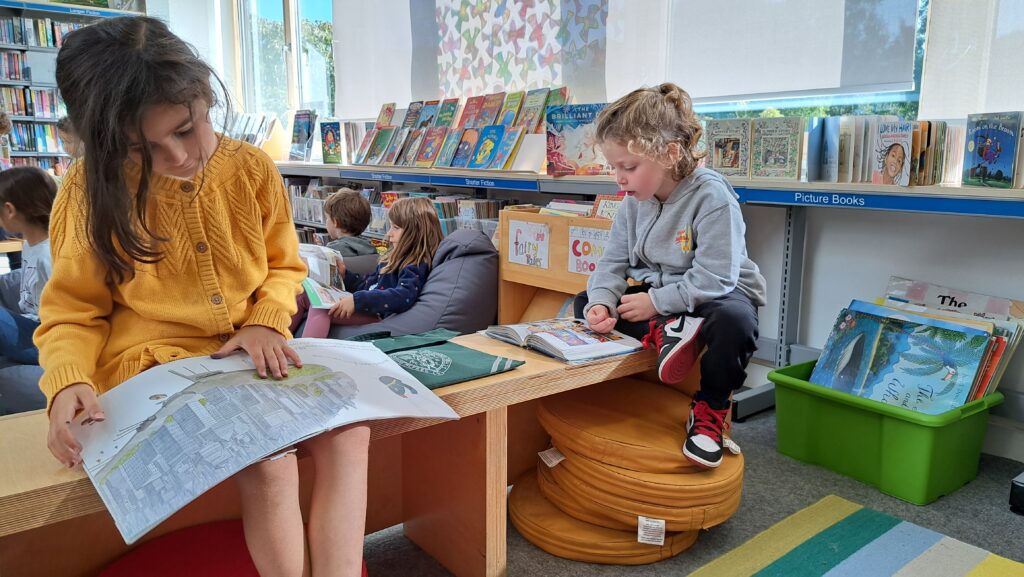
English
To help children to reach their potential in speaking, listening, reading and writing, each strand is taught explicitly within the context of our enquiry topics.
Speaking and listening: By allowing children the time to talk we help them shape their thinking when embarking on new projects. Differences in audience and purpose invite certain types of language which we help children to recognise and develop throughout Lower School.
Reading: Our aim is to ensure children become independent readers who love books and value them as an important part of their lives. Children have access to a wide range of reading material at all ages in their classrooms and the Lower School library. A structured synthetic phonics programme is introduced from Reception and all children are involved in individual and group reading sessions.
Writing: We provide interesting learning experiences which motivate children to write for a range of purposes in all areas of the curriculum. Whether focusing on creativity, stamina, handwriting, spelling or grammar, our teachers help children to see themselves as successful writers and to identify their next steps in learning.
Design Technology
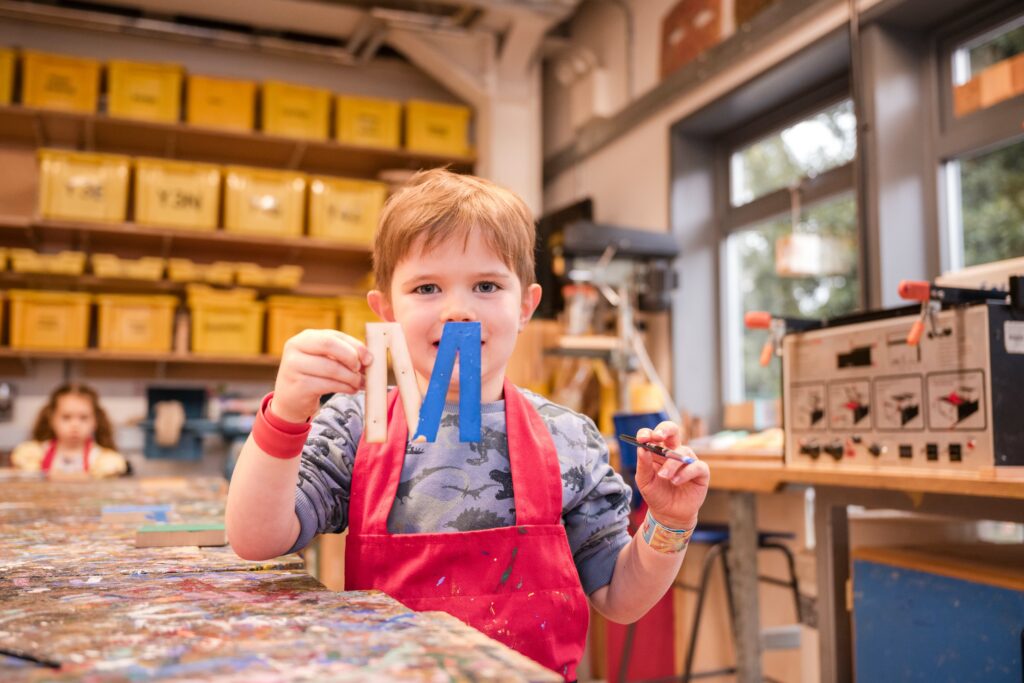
Design Technology
All classes are taught by specialist teachers and use the Design Technology building as well as the forge in Ivy Wood. These wonderful environments, with their interesting machines, tools and inspiring projects by older children create a sense of excitement and purpose for our younger children.
Children learn to use small saws, sanding blocks, hand drills and other basic tools in a safe environment in which health and safety is always of paramount importance. They work in half classes with a teacher and teaching assistant who provide one-to-one attention and guidance in choosing appropriate materials and tools. Wood, glue and fabric are the main components out of which wonderful things such as model planes, boxes, boats, wooden robots and miniature furniture are constructed, all with links to current classroom work. Children are gradually given more independence in the use of various hand tools and there is increasing emphasis on the importance of planning and design.
Children are introduced to increasingly challenging techniques and machines as they get older and are involved in problem solving as part of the design process.
French
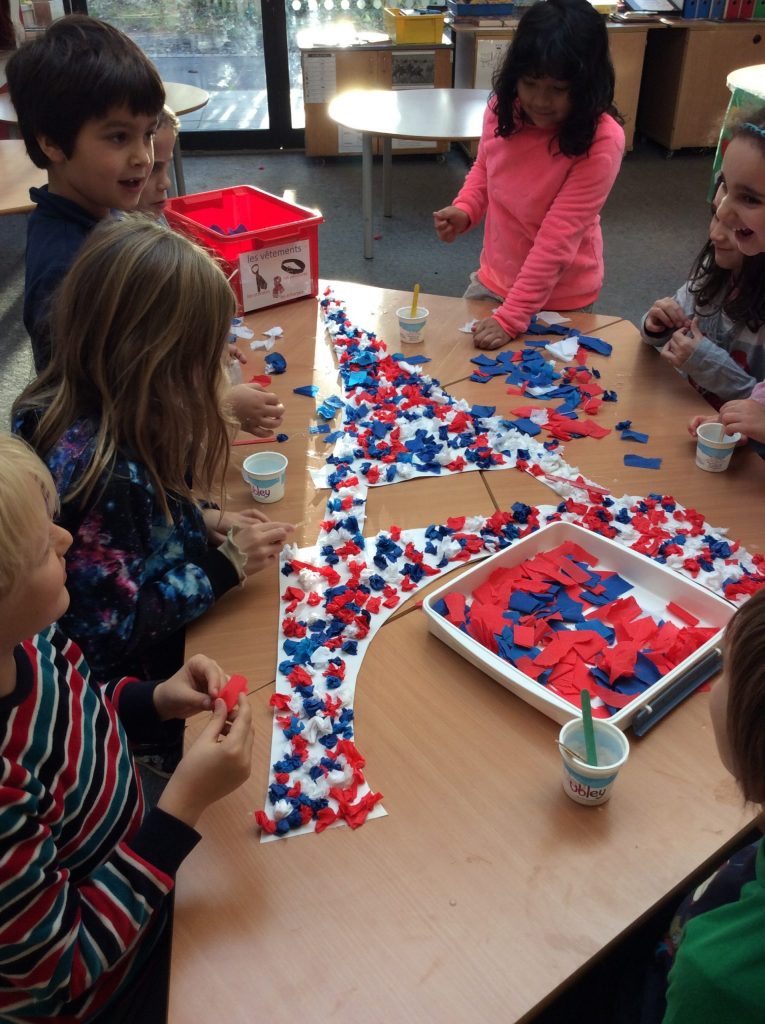
French
The Lower School French curriculum is taught in small groups, beginning in Reception. The course is topic and skills based, developing listening, speaking, reading and writing using authentic and relevant language. Activities have an exciting and multisensory approach. These include songs and rhymes, role play, indoor and outdoor games, cooking, food tasting, art and filmmaking.
The French experience is shared with the school community in annual events led by the students. Students enjoy a broader exposure to French through cultural outings and a performance from a visiting theatre group. This diverse range of experience ensures children of all abilities develop positive attitudes towards speaking and understanding a foreign language.

English
To help children to reach their potential in speaking, listening, reading and writing, each strand is taught explicitly within the context of our enquiry topics.
Speaking and listening: By allowing children the time to talk we help them shape their thinking when embarking on new projects. Differences in audience and purpose invite certain types of language which we help children to recognise and develop throughout Lower School.
Reading: Our aim is to ensure children become independent readers who love books and value them as an important part of their lives. Children have access to a wide range of reading material at all ages in their classrooms and the Lower School library. A structured synthetic phonics programme is introduced from Reception and all children are involved in individual and group reading sessions.
Writing: We provide interesting learning experiences which motivate children to write for a range of purposes in all areas of the curriculum. Whether focusing on creativity, stamina, handwriting, spelling or grammar, our teachers help children to see themselves as successful writers and to identify their next steps in learning.

Design Technology
All classes are taught by specialist teachers and use the Design Technology building as well as the forge in Ivy Wood. These wonderful environments, with their interesting machines, tools and inspiring projects by older children create a sense of excitement and purpose for our younger children.
Children learn to use small saws, sanding blocks, hand drills and other basic tools in a safe environment in which health and safety is always of paramount importance. They work in half classes with a teacher and teaching assistant who provide one-to-one attention and guidance in choosing appropriate materials and tools. Wood, glue and fabric are the main components out of which wonderful things such as model planes, boxes, boats, wooden robots and miniature furniture are constructed, all with links to current classroom work. Children are gradually given more independence in the use of various hand tools and there is increasing emphasis on the importance of planning and design.
Children are introduced to increasingly challenging techniques and machines as they get older and are involved in problem solving as part of the design process.

French
The Lower School French curriculum is taught in small groups, beginning in Reception. The course is topic and skills based, developing listening, speaking, reading and writing using authentic and relevant language. Activities have an exciting and multisensory approach. These include songs and rhymes, role play, indoor and outdoor games, cooking, food tasting, art and filmmaking.
The French experience is shared with the school community in annual events led by the students. Students enjoy a broader exposure to French through cultural outings and a performance from a visiting theatre group. This diverse range of experience ensures children of all abilities develop positive attitudes towards speaking and understanding a foreign language.
Humanities
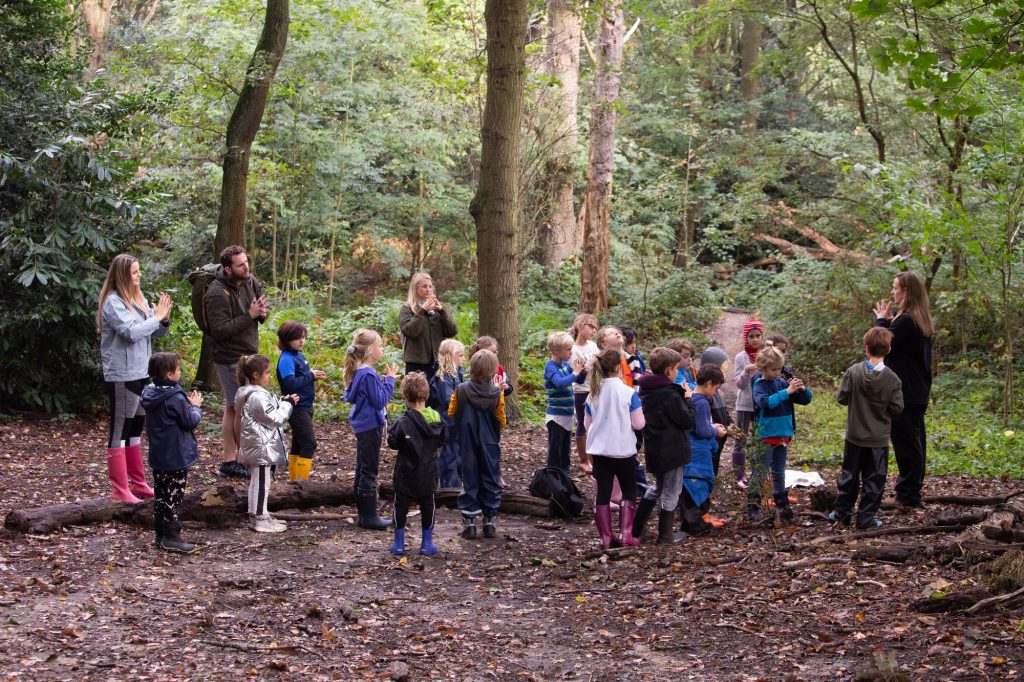
Humanities
At KAS we teach History and Geography as integral parts of the three topics children enquire into on an annual basis. These topics, guided by the teachers, follow the interests of the children and can look quite different from year to year. We make sure that each child has a breadth and balance of geographical and historical content throughout their time in Lower School while developing their subject specific skills in each area.
Our aims for geography:
- To foster a lifelong sense of awe and wonder for the Earth and everything in it.
- To create global citizens who are agents of positive change.
- To instil a deep understanding that we are part of nature and that nature is part of us.
Our aims for history:
- To provide a context from which we can understand ourselves and others.
- To help children understand change and societal development.
- To reflect on models of responsible citizenship in order to improve our own decision making and judgement.
Maths
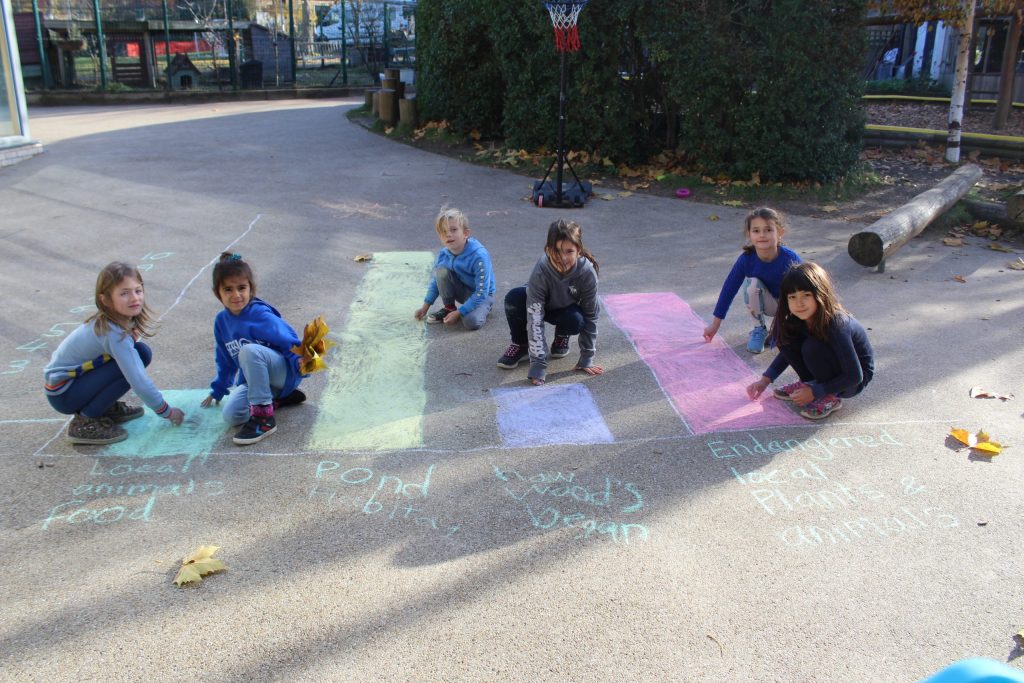
Maths
Throughout their experience of Maths in Lower School, we aim to enable your children to develop an understanding of the mathematical world in which they live. We want them to develop a mathematical confidence which allows them to think flexibly and creatively, to persevere, question and reflect, leading to a systematic approach to problem solving.
We have a comprehensive scheme of work covering number, algebra, shape and space, measure and data-handling and use a wide variety of resources to deliver it. Interesting and challenging investigations form an integral part of the curriculum.
The children often use their maths skills in other curriculum areas such as Science, Art, Computing, PE, DT, cooking and gardening. Maths Weeks are held to promote awareness of how Maths is used in everyday life.
Children are taught Maths by their own teachers in our mixed ability classes and are given appropriately differentiated tasks. In Years 5 and 6, a Maths activity is usually part of their home learning while in Years 2-4 the multiplication tables are mastered.
Learning Technology
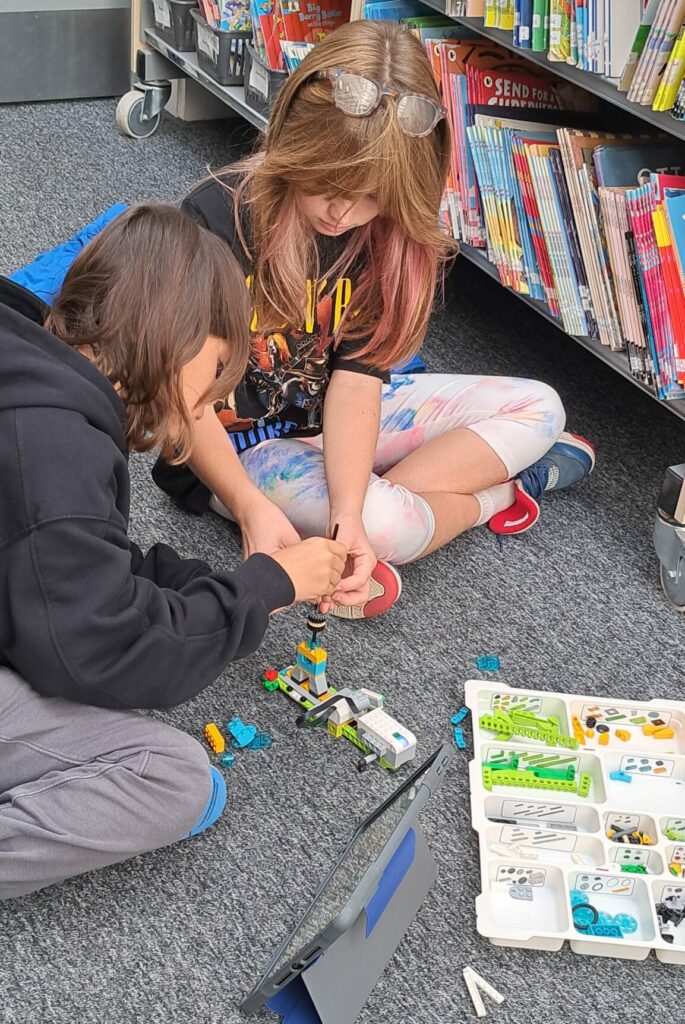
Learning Technology
Learning technologies – laptops, iPads, calculators, cameras, visualisers, interactive whiteboards to name but a few – are widely used to enhance each child’s learning experience. Our main focus is not the system, application or tool but how we can best use it to enhance the teaching and learning in Lower School. Our technology team keeps abreast of new developments and monitor the impact of our use of technology in order to promote best practice across all areas of the curriculum.
All classes have weekly lessons in the computer suite with a specialist teacher, learning how to access, sort, present and research information effectively. As our children are growing up in an information rich world we believe it is imperative that they are equipped with the necessary skills to enable them to use information discerningly to support and develop their knowledge and understanding of the everything around them. Information Literacy, the art of being able to find good information that you can use when you need it, is taught both within and beyond the computer suite. Ethical and safe use of the internet is a key feature of these lessons.
We believe that the best use of technology allows children to connect, create and collaborate. Coding, animation, and film making feature are taught to help children present their understandings across the curriculum.

Humanities
At KAS we teach History and Geography as integral parts of the three topics children enquire into on an annual basis. These topics, guided by the teachers, follow the interests of the children and can look quite different from year to year. We make sure that each child has a breadth and balance of geographical and historical content throughout their time in Lower School while developing their subject specific skills in each area.
Our aims for geography:
- To foster a lifelong sense of awe and wonder for the Earth and everything in it.
- To create global citizens who are agents of positive change.
- To instil a deep understanding that we are part of nature and that nature is part of us.
Our aims for history:
- To provide a context from which we can understand ourselves and others.
- To help children understand change and societal development.
- To reflect on models of responsible citizenship in order to improve our own decision making and judgement.

Maths
Throughout their experience of Maths in Lower School, we aim to enable your children to develop an understanding of the mathematical world in which they live. We want them to develop a mathematical confidence which allows them to think flexibly and creatively, to persevere, question and reflect, leading to a systematic approach to problem solving.
We have a comprehensive scheme of work covering number, algebra, shape and space, measure and data-handling and use a wide variety of resources to deliver it. Interesting and challenging investigations form an integral part of the curriculum.
The children often use their maths skills in other curriculum areas such as Science, Art, Computing, PE, DT, cooking and gardening. Maths Weeks are held to promote awareness of how Maths is used in everyday life.
Children are taught Maths by their own teachers in our mixed ability classes and are given appropriately differentiated tasks. In Years 5 and 6, a Maths activity is usually part of their home learning while in Years 2-4 the multiplication tables are mastered.

Learning Technology
Learning technologies – laptops, iPads, calculators, cameras, visualisers, interactive whiteboards to name but a few – are widely used to enhance each child’s learning experience. Our main focus is not the system, application or tool but how we can best use it to enhance the teaching and learning in Lower School. Our technology team keeps abreast of new developments and monitor the impact of our use of technology in order to promote best practice across all areas of the curriculum.
All classes have weekly lessons in the computer suite with a specialist teacher, learning how to access, sort, present and research information effectively. As our children are growing up in an information rich world we believe it is imperative that they are equipped with the necessary skills to enable them to use information discerningly to support and develop their knowledge and understanding of the everything around them. Information Literacy, the art of being able to find good information that you can use when you need it, is taught both within and beyond the computer suite. Ethical and safe use of the internet is a key feature of these lessons.
We believe that the best use of technology allows children to connect, create and collaborate. Coding, animation, and film making feature are taught to help children present their understandings across the curriculum.
Performing Arts
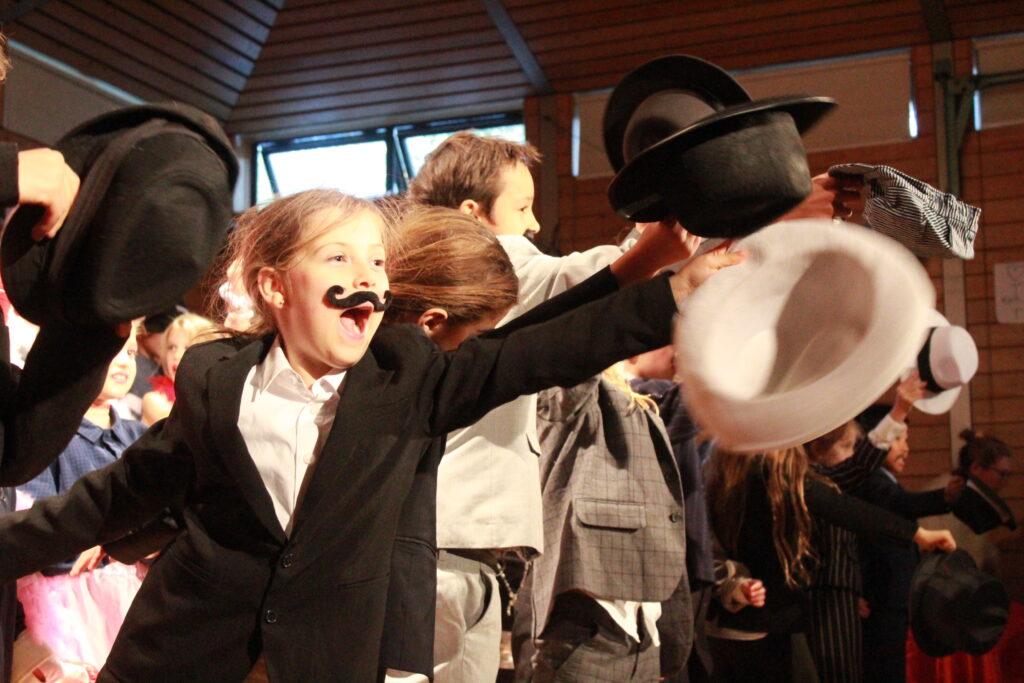
Performing Arts
All classes from Reception to Year 6 use drama to develop confidence, communication skills and understanding across all areas of the curriculum. Children have the opportunity to participate in performances which are linked with work within the classroom. Plays are performed in the Lower School Hall, the Phoenix Theatre or the amphitheatre. The children have ample opportunities to take on challenging roles and children with special interests are allowed to develop them. Some children volunteer for roles such as lighting, stage management, costume design and make up. Private LAMDA classes are available on request.
Each class has a weekly lesson with a specialist music teacher. Class music lessons focus on the main parameters of music: pitch, timbre, texture, duration, dynamics and tempo. Children compose, perform, listen and sing. In Years 3 and 4 children learn to play the ukulele. Lower School children can choose to join choirs, the orchestra or the flute group and our team of peripatetic teachers offer private singing and instrumental lessons to those who are interested. Choir and instrumental concerts occur throughout the year.
Personal Social Health Education
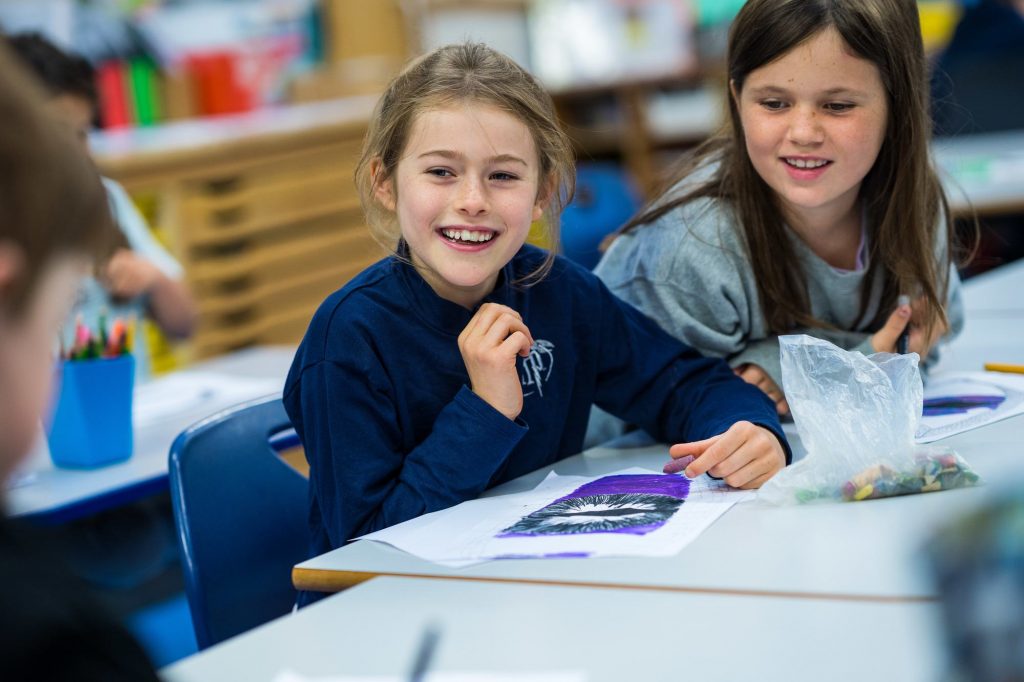
Personal Social Health Education
Personal, Social and Health Education is delivered both implicitly and explicitly across the Lower School. Personal development helps our children to build their confidence, resilience and self-esteem, identify and manage risk, make informed choices and understand what influences their decisions.
We are deeply committed to ensuring our children understand the importance of having ‘healthy minds’ and teach a programme in all year groups which is designed to help children understand how their minds work and how their thoughts and feelings affect their behaviour. Lessons based on neuroscience, positive psychology and mindful awareness support our children’s well-being and mental health.
Our PSHE curriculum enables the children to recognise, accept and shape their identities, to understand and accommodate difference and change, to manage their emotions and to communicate effectively in a variety of settings. We believe that developing empathy, an understanding of themselves, and the ability to work with others helps them to form and maintain good relationships so that they can better enjoy and manage their lives. You can see our curriculum overview here – PSHE Lower School.
Science
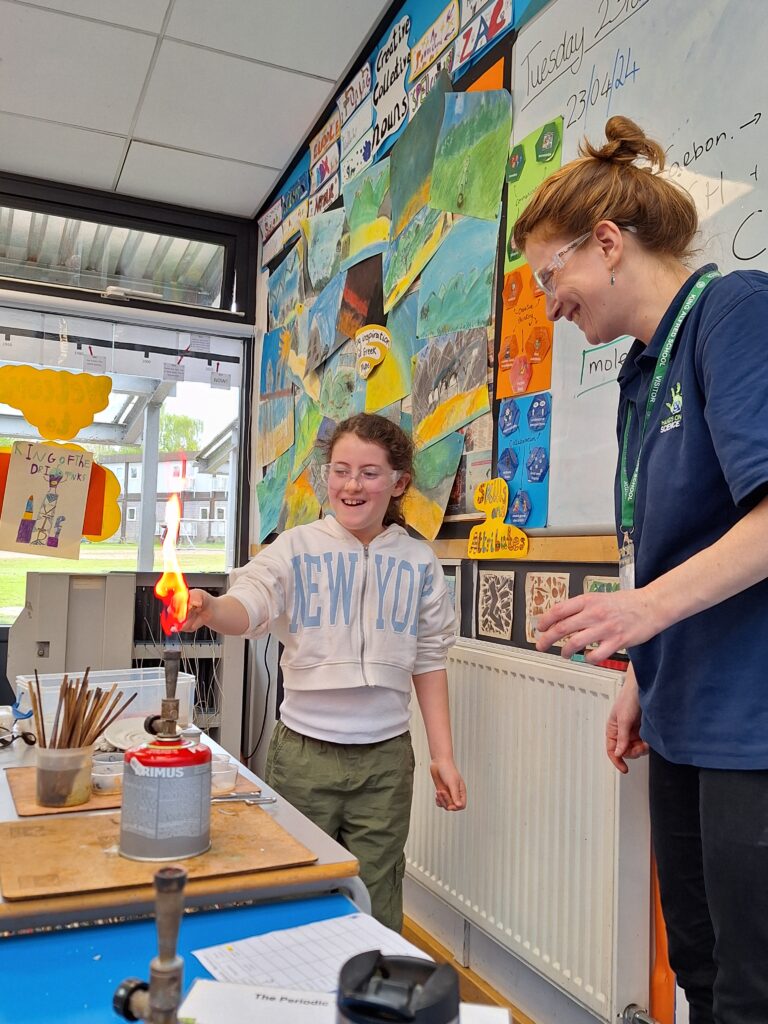
Science
In all Science lessons there is an emphasis on experimentation and learning from practical activities. Children are encouraged to make observations about the world around them and to explore ways that their observations might be tested as we introduce them to systematic scientific thinking. Investigations are undertaken, results recorded and conclusions drawn from the outcomes. Our young scientists investigate living things, habitats, earth and space, properties of materials, states of matter, electricity, forces, light, sound, electricity and evolution in a curriculum that invites cross curricular links in all year groups.
Outdoor learning is an important part of our science work. The woods, ponds and farm all provide opportunities for exciting hands-on experiences such as mini-beast hunts, pond dipping and animal care.
We make good use of the resources available to us. Visits are made to places such as the Natural History Museum for “Investigate!” sessions and the Science Museum where the children undertake special activities like Launchpad, and workshops relating to rocket science and bridge-building.

Performing Arts
All classes from Reception to Year 6 use drama to develop confidence, communication skills and understanding across all areas of the curriculum. Children have the opportunity to participate in performances which are linked with work within the classroom. Plays are performed in the Lower School Hall, the Phoenix Theatre or the amphitheatre. The children have ample opportunities to take on challenging roles and children with special interests are allowed to develop them. Some children volunteer for roles such as lighting, stage management, costume design and make up. Private LAMDA classes are available on request.
Each class has a weekly lesson with a specialist music teacher. Class music lessons focus on the main parameters of music: pitch, timbre, texture, duration, dynamics and tempo. Children compose, perform, listen and sing. In Years 3 and 4 children learn to play the ukulele. Lower School children can choose to join choirs, the orchestra or the flute group and our team of peripatetic teachers offer private singing and instrumental lessons to those who are interested. Choir and instrumental concerts occur throughout the year.

Personal Social Health Education
Personal, Social and Health Education is delivered both implicitly and explicitly across the Lower School. Personal development helps our children to build their confidence, resilience and self-esteem, identify and manage risk, make informed choices and understand what influences their decisions.
We are deeply committed to ensuring our children understand the importance of having ‘healthy minds’ and teach a programme in all year groups which is designed to help children understand how their minds work and how their thoughts and feelings affect their behaviour. Lessons based on neuroscience, positive psychology and mindful awareness support our children’s well-being and mental health.
Our PSHE curriculum enables the children to recognise, accept and shape their identities, to understand and accommodate difference and change, to manage their emotions and to communicate effectively in a variety of settings. We believe that developing empathy, an understanding of themselves, and the ability to work with others helps them to form and maintain good relationships so that they can better enjoy and manage their lives. You can see our curriculum overview here – PSHE Lower School.

Science
In all Science lessons there is an emphasis on experimentation and learning from practical activities. Children are encouraged to make observations about the world around them and to explore ways that their observations might be tested as we introduce them to systematic scientific thinking. Investigations are undertaken, results recorded and conclusions drawn from the outcomes. Our young scientists investigate living things, habitats, earth and space, properties of materials, states of matter, electricity, forces, light, sound, electricity and evolution in a curriculum that invites cross curricular links in all year groups.
Outdoor learning is an important part of our science work. The woods, ponds and farm all provide opportunities for exciting hands-on experiences such as mini-beast hunts, pond dipping and animal care.
We make good use of the resources available to us. Visits are made to places such as the Natural History Museum for “Investigate!” sessions and the Science Museum where the children undertake special activities like Launchpad, and workshops relating to rocket science and bridge-building.
Physical Education
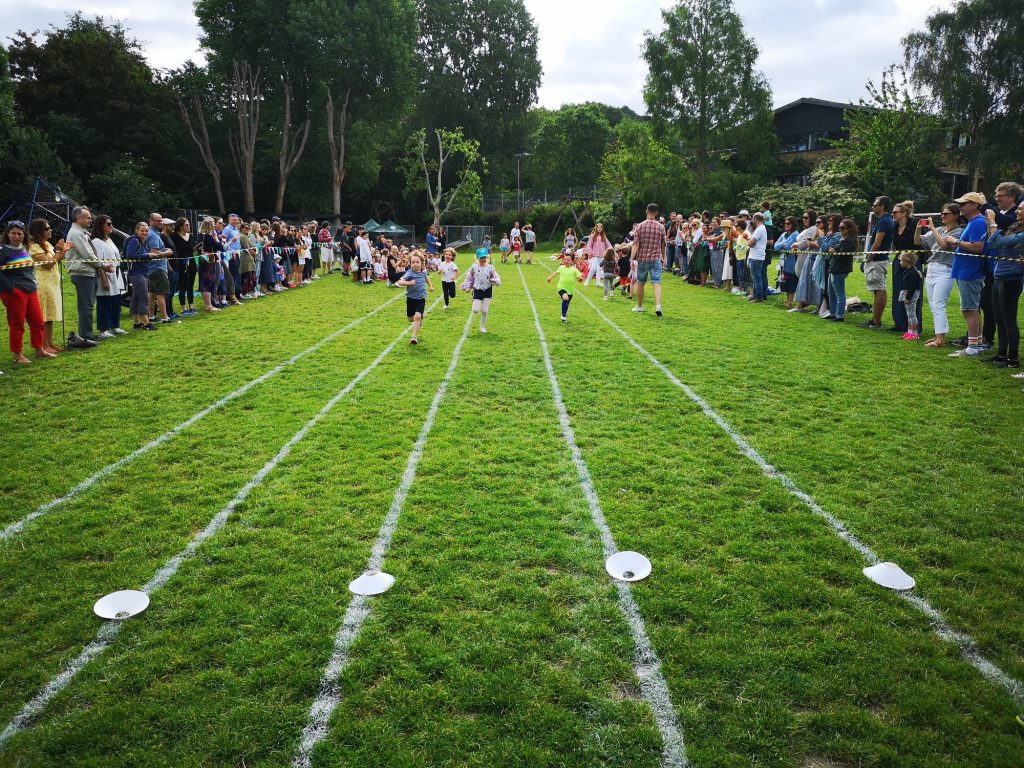
Physical Education
Our aim is for children to develop a positive attitude towards physical activity and its importance in their lives. The Lower School physical education programme aims to be fun while developing each child’s fitness and motor skills.
Through our weekly PE and Games sessions children establish a strong foundation of skills across the range of team and individual sports and physical pursuits. Athletics, basketball, circuit training, dance, football, gymnastics, hockey, judo, netball, rounders and swimming are all on offer in Lower School.
Our commitment to physical education is evident through the healthy amount of time allocated in the curriculum. In addition there are opportunities for children to pursue their interests and talents in extra curricular activities including football, basketball, badminton and table tennis. For those interested in competitive sports there is a programme of fixtures against other schools for football, rugby, netball and athletics.
Visual Arts
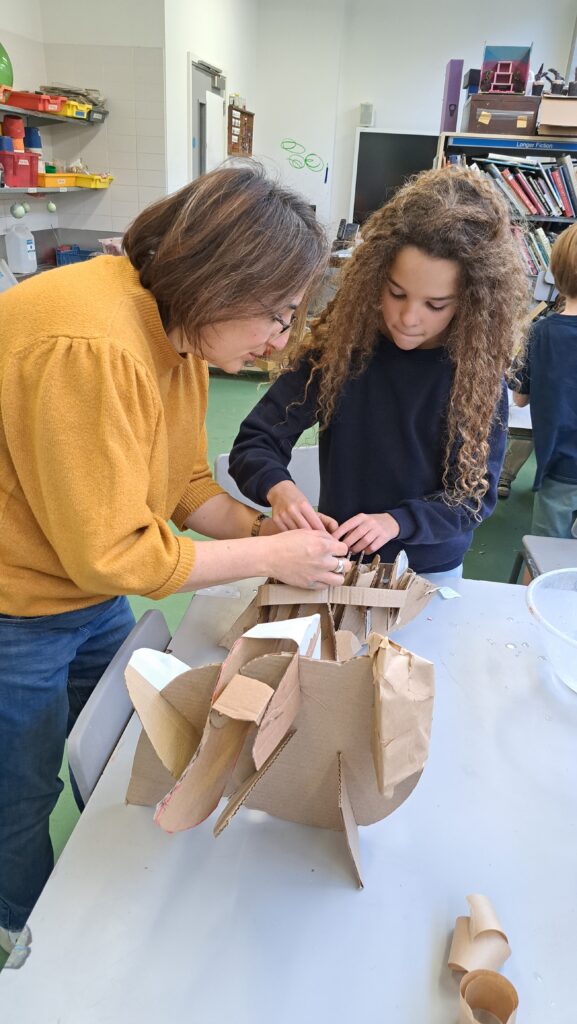
Visual Arts
Art at KAS provides:
- opportunities to develop skills
- a means of expression of both emotional and intellectual perspectives
- exposure to other cultures and other times
- a vehicle for wondering and reflecting about their world
Art and Design in Lower School introduces children to a diverse range of artistic processes, materials and ideas. From painting and drawing to photography and graphic design, children have the opportunity to increase their technical abilities while exploring ‘making’ as a means of communication and expression. Children work with their classroom teachers to produce art work using a variety of media. In addition, our artist in residence teaches all year groups in a dedicated studio. Discussion and collaboration with teachers ensure that art taught in the studio is sympathetic to topics covered in the classes. Throughout the year, students produce work individually and as part of collaborative groups which take the form of a one lesson project or a sustained investigation over several weeks.

Physical Education
Our aim is for children to develop a positive attitude towards physical activity and its importance in their lives. The Lower School physical education programme aims to be fun while developing each child’s fitness and motor skills.
Through our weekly PE and Games sessions children establish a strong foundation of skills across the range of team and individual sports and physical pursuits. Athletics, basketball, circuit training, dance, football, gymnastics, hockey, judo, netball, rounders and swimming are all on offer in Lower School.
Our commitment to physical education is evident through the healthy amount of time allocated in the curriculum. In addition there are opportunities for children to pursue their interests and talents in extra curricular activities including football, basketball, badminton and table tennis. For those interested in competitive sports there is a programme of fixtures against other schools for football, rugby, netball and athletics.

Visual Arts
Art at KAS provides:
- opportunities to develop skills
- a means of expression of both emotional and intellectual perspectives
- exposure to other cultures and other times
- a vehicle for wondering and reflecting about their world
Art and Design in Lower School introduces children to a diverse range of artistic processes, materials and ideas. From painting and drawing to photography and graphic design, children have the opportunity to increase their technical abilities while exploring ‘making’ as a means of communication and expression. Children work with their classroom teachers to produce art work using a variety of media. In addition, our artist in residence teaches all year groups in a dedicated studio. Discussion and collaboration with teachers ensure that art taught in the studio is sympathetic to topics covered in the classes. Throughout the year, students produce work individually and as part of collaborative groups which take the form of a one lesson project or a sustained investigation over several weeks.
At KAS we use enquiry as our main pedagogical approach, creating exciting opportunities, interesting provocations and hands-on ‘real life’ experiences for the children to experience and explore. Enquiry based learning is more than asking a child what he or she wants to know, it is about triggering curiosity and opening the door to new learning.
In enquiry based learning, teachers take the role of facilitators, observing what children say and do and then asking the right kind of questions just at the right time to move the learning forward.
Our teachers know the curriculum well enough to embrace and develop students’ interests in order to address – and often surpass – traditional age related expectations. They use the children’s questions and theories to help shape the learning, knowing there is more than one path to any intended outcome.
As enquirers, children take age appropriate responsibility for their learning. We help them to track their progress against personal and academic goals, celebrate their successes and embrace challenge as part of the learning process.
Early Years: Reception – Year 2
Children begin their school journey by learning at their own pace without undue pressure. These years provide a strong foundation in the core skills of numeracy and literacy. Alongside this, there is a topic-based curriculum which interweaves subjects including Art, Drama, History, Geography and Science. In other parts of the week, the children are taught by specialist teachers in PE, French, Music and Design Technology to develop these skills.
Years 3 – 5
Building on strong foundations, the children now embrace an enquiry-based approach with a focus on skills, attributes and metacognition. They are empowered in their learning, and assessment is used to promote ownership of their work via studentled conferences, portfolios and learning journals. A strong emphasis continues on developing literacy and numeracy, as well as specialist subject knowledge.
Years 6 – 8
Our provision prioritises these critical years in early adolescence which are often overlooked in British schools. We have created an innovative and balanced learning experience with powerful opportunities for personal growth. We combine exciting ‘Interdisciplinary Enquiries’ with rich single subject learning and a vibrant Co-curricular programme. All this is underpinned by the Crew structure which supports pastoral and academic development.
As a part of this experience, the School requires parents to purchase a school-provided laptop at the start of Year 6. This device is monitored by our dedicated Tech Team and comes equipped with everything students need to access our exciting curriculum, while also keeping them safe.
This film made as part of the Big Education Next Big 10 working group, shows how enquiry based learning works in Reception and Year 1:




